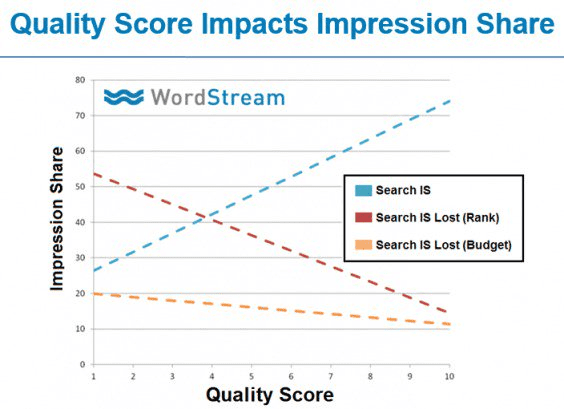When it comes to pay-per-click or CPC marketing, every click counts. And, stakes are high when providing PPC services to customers.
That’s because getting them the much-needed clicks to boost business is integral to the success of your own business.
Without getting customers clicks, you will lose them and earn a poor reputation. And clearly, you don’t want this.
That’s why you should know the major PPC mistakes that you are likely to make and how to avoid them.
Having No Strategic Plan
Operating without a clear understanding of the goals for a campaign, as well as how to achieve those goals, is one of the most common and costly PPC mistakes that you are likely to make.
This mistake will cost you in the long run.
Setting a clear and executable strategy up front is one of the crucial pieces of PPC marketing.
You need a PPC strategy that clearly defines the target audience of the marketing campaign, and how to reach that audience.
If you don’t know who the offer is geared toward, you’ll find it challenging to even write ad texts.
What’s more, you’ll struggle to build landing pages that encourage the target market to take the desired action.
PPC may have a bad reputation from individuals that do not take time to strategize.
However, if you make concentrated effort to segment your campaigns and ad groups based on the target audience and intention, you will find them quite powerful.
So, before you start writing your ads, come up with conversion funnels. Make sure that they work and you can look back and see the overall picture.
An effective PPC marketing campaign starts with clear goals and a strategy for accomplishing them.
And one of the most important pieces of that strategy is defining as well as understanding the audience.
Choosing the Wrong Metrics
Not all conversions are the same. Unfortunately, many people do not optimize against sales as well as tracking back to keywords and placements that actually make them money.
Nevertheless, using Google ValueTrack parameters provides crucial insights.
Measuring value that is close to money is very important.
Ideally, focus on identifying the people that make money and understanding their behavior as well as motivation. Then, optimize to reach more of them.
When added to the URLs of the landing pages, Google ValueTrack parameters collect information on ad clicks source.
Not Testing Conversion Funnel Beforehand
If you want to know whether a PPC campaign is working or not, start out by testing conversions and checking analytics before you run it.
No matter what type of campaign, you should always test your conversion funnel beforehand.
This will enable you to avoid wasting money on a campaign that will send users who won’t buy anything because of a problem in the checkout process.
Quality assurance is very important. Unfortunately, it’s often ignored, because many advertisers focus on getting something live as soon as possible.
To ensure that you are running an effective PPC campaign, do the following:
- Perform a heuristic analysis of the site
- Perform a user test
- Conduct cross-browser and cross-device testing
- Conduct a health check of Google Analytics
Using “Broad Match” on Short-tail Head Terms
Unless your budget is absurdly high, don’t use broad match if you are targeting any high competition, high volume keywords.
For instance, if you deal with phones, don’t bid on phones as a broad match keyword.
Doing so will cost you a lot of money in a limited time without guaranteeing any reasonable number of conversions.
To ensure proper coverage of such terms, stick to exact match then use all the bid modifiers possible. These include geographic, mobile and ad schedule that enables you to show effective ads for the right terms.
Mistaking Display Network (Content Match) with PPC, and CTR with Conversion Rate
Content match is not the same as search results, CTR or Conversion rate. Unfortunately, many advertisers mistake these.
Content match refers to a Google Display Network option where the paid listing is placed on web pages that have relevant content, instead of placing it in the search engine results.
Search results or search engine results pages (SERPs) are the listings that the search engine displays in response to the query by a user.
The results are comprised of Google’s suggested web pages matching the keyword query, and that SERP may include relevant ads if anyone is bidding on the term searched.
CTR stands for click-through rate. It is the ratio of the users that click through the provided link to that of the total users that view the advert. CTR makes measuring the success of an advertising campaign possible.
Conversion rate refers to the percentage of the users that take the desired action on the landing page after they click the ad.
For instance, this can refer to the percentage of the site’s visitors that purchases an item or shares an email address to download premium content like ebooks or white papers.
To avoid this mistake, know the clear distinction between these concepts when running your PPC advertising campaign.
Wasting Time and Money on the Wrong Keywords
Just like audience targeting, your ads should have keywords that describe the target audience and what they will be interested in.
Always bear in mind that your goal is to grab the attention of the right audience. And if you don’t do this with your keywords, you will miss out on generating any interest.
Therefore, match your audience with the right keywords and don’t use them excessively. Do this with careful consideration of the item, service or idea that you are marketing. That’s the only way to ensure higher clicks potential.
Low-Quality Writing: Boring or Emotionless
Writing boring or emotionless ads will lower the quality score of your campaign.
Therefore, avoid low-quality, junk ads with terrible keywords.
Instead, strive to write better ads. This will reduce cost per click while increasing impression share.

Photo credit: Word Stream
Generally, interesting ads reduce cost per conversion, while increasing CTR and conversions.
Conclusion
Whether you are a veteran or just venturing into PPC advertising, it’s important that you always remember these mistakes and avoid them when running a PPC advertising campaign.
Any of these mistakes can make all the difference in terms of the clicks that your ads get.
Feature Image Credit: CC 0; Public Domain. View original feature image on Pixabay.com.
Disclaimer: The views and opinions stated in this post are that of the author, and Return On Now may or may not agree with any or all of the commentary.
Amber Wilson
Latest posts by Amber Wilson (see all)
- Top 7 Costly PPC Mistakes and How to Avoid Them - March 20, 2018





